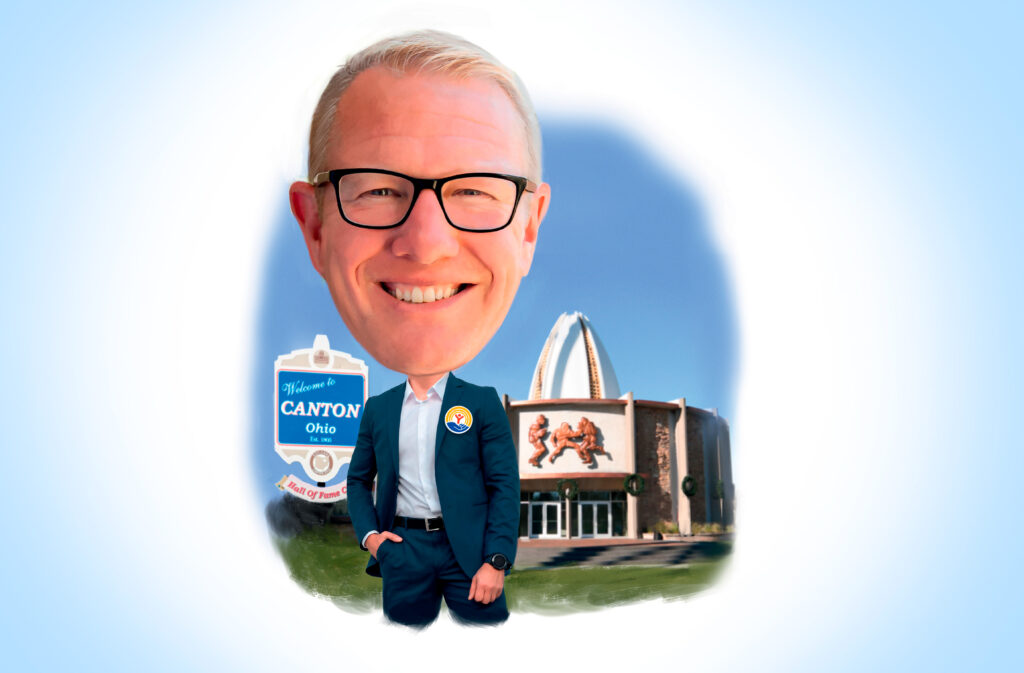
Potholes to Perfection

There is, I assert, a supernatural aura around certain books, in that they appear at exactly the right time in a person’s life when advice is needed to signal a path through a thicket of sleep-robbing obstacles or to learn from an author’s recounting of painful anecdotes that led to a solution.
There is, I assert, a supernatural aura around certain books, in that they appear at exactly the right time in a person’s life when advice is needed to signal a path through a thicket of sleep-robbing obstacles or to learn from an author’s recounting of painful anecdotes that led to a solution. At the end of 2022, out of the serendipitous mist of good fortune, both Unreasonable Hospitality: The Remarkable Power of Giving People More Than They Expect and Setting the Table: The Transforming Power of Hospitality in Business landed on my nightstand.
Unreasonable Hospitality: The Remarkable Power of Giving People More Than They Expect
By Will Guidara
Penguin Random House
$29
Setting the Table: The Transforming Power of Hospitality in Business
By Danny Meyer
HarperCollins Publishers
$29.99
Unlike many conventional business bromides outlining a series of steps, including end-of-chapter checklists, both books are wrapped within and intertwined with the life stories of their authors. Setting the Table author Danny Meyer and Unreasonable Hospitality author Will Guidara are personable, family-oriented guides in growing a business. Both restaurateurs, Guidara co-owned the lauded Eleven Madison Park, and Meyer’s restaurants include the Michelin-rated Grammercy Tavern and The Modern.
It was helpful to see myself and several of my past actions or missteps in their stories. Early in his career in his first management role, Guidara fired a server who was routinely tardy. The server walked in a full two hours late on a busy evening, “casually strolling” to the locker room. “Don’t bother changing, you’re fired,” Guidara called after him. The next day, human resources rehired the server explaining to Guidara, “Regulars love him, and his check averages are routinely high. He’ll be at work tomorrow; it would be great if you could apologize to him.” In Guidara’s view, his human resources colleagues, removed from the hustle and bustle of the restaurant floor, were not fully grasping the entire situation and were “eroding the foundation of everything you’re trying to build” in delivering customer service in an organized and fair fashion. “[T]he collateral damage to the culture of a business is too dire to be tolerated,” he writes. I’ve had a scuffle our two with HR folks myself.
When opening his New York City barbecue restaurant, Blue Smoke, Meyer was eviscerated by the negative reviews: “Who the hell is Danny Meyer to be opening a barbecue restaurant? What could he know about it? See? Aha! Blue Smoke will be his Waterloo!” Truly a man of grace and passion, Meyer soldiered on, “For months, Blue Smoke remained a big, juicy target.”
In what appeared to be an unrelenting barrage of unfavorable feedback, Meyer stuck to his vison. “Previous success in any field invites high expectations and scrutiny the next time around … But a mark of a champion is to welcome scrutiny, persevere, perform beyond expectations, and provide an exceptional product—for which forgiveness is not necessary,” he writes.
Meyer and Guidara were on my mind as I faced a pivotal, and stressful, point in the business I founded over 20 years ago. Pass Christian Books opened in 2002 and is named after our community, Pass Christian, a peninsula on the Mississippi Gulf Coast, just a few miles from the Louisiana border. The coffeehouse was added in 2014 when Sean, my business partner and husband, and I purchased a small sliver of land on a bluff in town to construct our building, with Cat Island shimmeringly visible in the distance. An abundance of glass and a wraparound deck allow our guests an unfettered view of the azure water seamlessly blending into the cloudless sky as they sip cold brews while browsing books. A brown pelican may be sighted, dive-bombing into the gulf for a meal. In season, shrimp and oyster boats appear to glide to the harbor at dusk with a rising full moon lighting the tie-up at dock.
At the end of last year, we opened a second coffeehouse and bookstore in Gulfport and began construction of a 2,500-square-foot event center directly across the street from our Pass Christian location. My work in the business is often late at night after I leave the insurance agency and on weekends. I looked up one evening in October as I was processing payroll and caught my breath. How did we grow to 30 employees? My point-of-sale system and database reporting showed that we were going to finish the year with close to 500,000 customer transactions. Lines were often out the door several mornings during the week. Sean and I were very tired. Were we running the business, or was it running us?
Guidara points to the problem that the bookstore/coffeehouse was at the risk of drowning in. “As you grow, you can’t lose the very thing that gave you the opportunity to grow. … For us, that was our culture of Unreasonable Hospitality—going above and beyond, doing more, always giving our guests more than they expected.”
“Know Thyself”
Early in the opening months of his first New York City restaurant, Union Square Cafe, Meyer was pushing for volume as I was. “Though the restaurateur in me was obsessed with hospitality, the entrepreneur in me was becoming addicted to volume.” Like Meyer, our small kitchen was straining every day, barista drink quality was not always up to the standard we were striving for, and I was often working until midnight to unpack multiple cartons of books to restock shelves. Meyer’s curative and corrective advice hit home: “Know thyself: Before you go to market, know what you are selling and to whom. Be the best you can be within a reasonably tight product focus.”
Sean and I had always told ourselves that we were not fundamentally in the coffee or book business but rather in the business of creating an experience. Reminding ourselves of this, we doubled down. “The definition of business is problems,” reminds Meyer. “The road to success is paved with mistakes well handled.”
Regardless of the industry we are in, clients expect consistency in service and ease of doing business every time they interact with us. The bar is increasingly higher as the pace of change accelerates almost, it feels, on a weekly basis. With automation removing much of the clunkiness in the actual doing of the business itself—the conveniences of texting and emailing, digital signatures, software and databases storing customer habits and preferences—the actual human connection, the passion and warmth of the conversation surrounding the product or service, matter even more as a differentiating factor. “In restaurants—and in all customer service professions—the goal is to connect with people,” underscores Guidara, “create a genuine relationship, and do what you need to in order to connect with the people you’re serving.”
We removed a third of the seating in the bookstore/coffeehouse. All staff were required to dress up, no denims, and dress shirts tucked in. Every seated guest was to receive ice water served in a glass goblet whether inside or on the deck. We added a maître d’ at peak times to greet guests at the door and guide them through their experience. Light jazz was the mandated background music. Servers were trained to slow down, exchange a few words with guests while getting to know them by name, smile, and remember the power of the phrase “It is my pleasure.” We began to have fun again with our visibly delighted guests. The town was abuzz over our uplifted focus.
With fewer seats and a slowed pace to refocus on the guest experience, revenue increased. “No business should be off-limits to reevaluation,” says Guidara.
“Actually, though, food is secondary to something that matters even more,” Meyer says. “In the end, what’s most meaningful is creating positive, uplifting outcomes for human experiences and human relationships. Business, like life, is all about how you make people feel. It’s that simple, and it’s that hard.”
It dawned on me, somewhere in the middle of reading Unreasonable Hospitality and Setting the Table, that, regardless of the type of business that one may be in, anyone engaged in any interaction with the public is in the hospitality business. How we make a client or customer feel during and after the transaction is too frequently overlooked in the delivery of a product or service, when in fact it should be the core focus of staff training and coaching.
“People will forget what you do; they’ll forget what you said. But they’ll never forget how you made them feel,” notes Guidara in a statement attributed, “probably incorrectly,” to the writer Maya Angelou.
As I was finishing this article, a social media review of Pass Christian Books/Cat Island Coffeehouse was posted: “What café offers water at your table without charge, welcomes you with extreme professionalism as if you are their number one client, and has amazing books at your fingertips! I just cannot say how much I love this place, the owners, staff, and the feeling I walk out with! Best chai tea! Best breakfast! Best atmosphere! My son says best coffee too!”
“Why do I keep climbing mountains?” asks Meyer. “Because with few exceptions there’s always a higher, steeper mountain to scale, and I’m willing to confront all sorts of treacherous conditions, especially when I’m convinced they’ll lead to exhilarating views from the top.”




